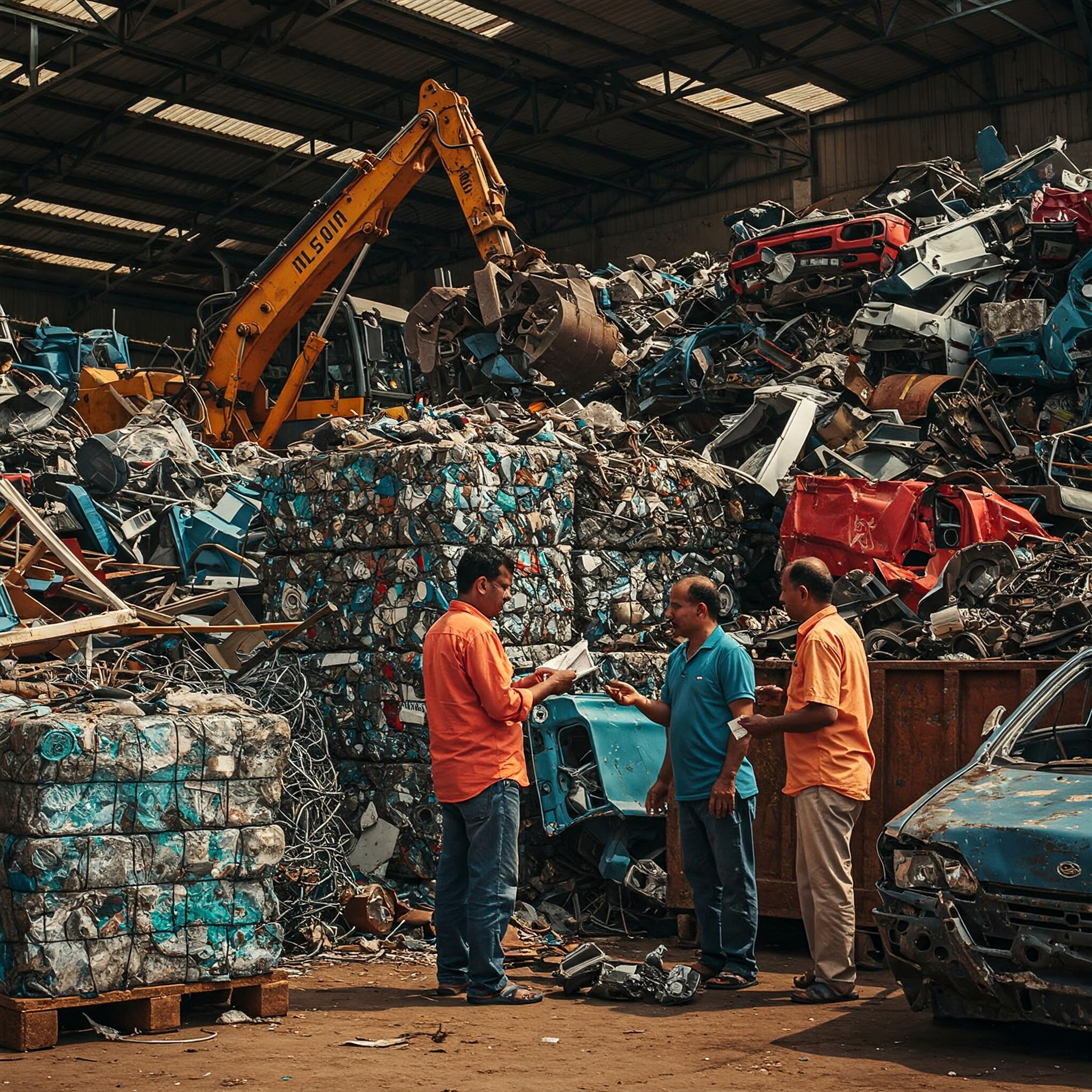
Buying & Selling All Types of Scrap
A business specializing in buying and selling all types of scrap deals with the collection, processing, and resale of recyclable materials. These materials are often sourced from industries, construction sites, households, and other sectors, then sorted and sold to recycling plants or manufacturers for reuse. Scrap trading is crucial for environmental sustainability, reducing waste, and conserving natural resources.
Types of Scrap Materials Handled:
Metal Scrap:
Ferrous Metals: Iron, steel, cast iron
Non-Ferrous Metals: Aluminum, copper, brass, bronze, lead, zinc, nickel
Electronic Waste (E-Waste):
Old computers, mobile phones, circuit boards, and batteries
Contains valuable metals like gold, silver, and palladium
Plastic Scrap:
PET bottles, PVC, and other industrial plastics
Recycled into packaging materials and consumer goods
Paper & Cardboard:
Waste paper, books, newspapers, and cartons
Recycled into packaging, tissues, and paper products
Rubber & Tires:
Used tires and industrial rubber
Repurposed for asphalt, playground surfaces, and fuel
Glass Scrap:
Bottles, jars, and industrial glass
Recycled into new glass products and insulation
Process of Buying & Selling Scrap:
Collection:
Sourced from industrial waste, demolition sites, households, and businesses.
Sorting & Segregation:
Materials are sorted by type, quality, and grade.
Non-recyclable items are removed.
Processing:
Metals are cut, shredded, or melted.
Plastics and paper are compressed into bales for transport.
Valuation & Pricing:
Scrap is valued based on current market rates, metal purity, and weight.
Resale to Recyclers or Manufacturers:
Processed scrap is sold to recycling plants or industries that reuse the materials.
Benefits of Scrap Trading:
Environmental Conservation: Reduces landfill waste and pollution.
Resource Conservation: Saves energy by recycling metals and plastics.
Economic Value: Generates income and supports local economies.